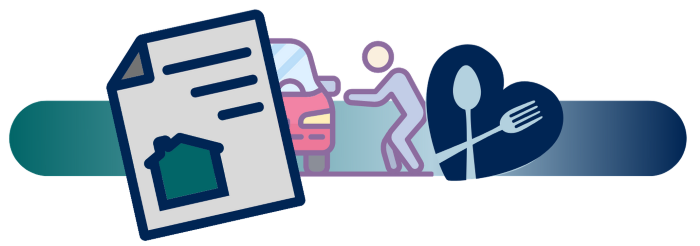Personal Lines Bulletin | February 2021

7 Tips to Minimize the Risk of Auto Theft
According to the Insurance Information Institute, a motor vehicle is stolen in the United States every 45 seconds. To minimize your risk of an auto theft, consider the following action items:
1. Never drive alone in unfamiliar or high-crime areas.
2. Be vigilant if involved in a minor collision—the accident may be a ruse to get you out of your vehicle.
3. Avoid sitting in your car with doors unlocked or with the windows down.
4. Hide or remove any valuable items from your vehicle.
5. Park your vehicle in a visible, secure and/or high-traffic area.
6. Lock car doors, roll up windows and remove keys from your vehicle when left unattended.
7. Install a security system or utilize pre-existing anti-theft devices in your vehicle.
7 Tips to Minimize the Risk of Auto Theft
According to the Insurance Information Institute, a motor vehicle is stolen in the United States every 45 seconds. To minimize your risk of an auto theft, consider the following action items:
1. Never drive alone in unfamiliar or high-crime areas.
2. Be vigilant if involved in a minor collision—the accident may be a ruse to get you out of your vehicle.
3. Avoid sitting in your car with doors unlocked or with the windows down.
4. Hide or remove any valuable items from your vehicle.
5. Park your vehicle in a visible, secure and/or high-traffic area.
6. Lock car doors, roll up windows and remove keys from your vehicle when left unattended.
7. Install a security system or utilize pre-existing anti-theft devices in your vehicle.
Top Homeowners Insurance Claims
As a homeowner, you do everything you can to protect yourself from loss. Although some claims may be out of your control, being aware of common causes of insurance claims can help you prepare when faced with loss.
The top homeowners insurance claims include:
Wind and hail damage —Damages from wind and hail are the most common homeowners insurance claims. Severe winds and hail can strip the siding off of your home, damage your roof and even break windows.
Fire and lightning damage —A recent study by the Insurance Information Institute found that fire and lightning claims are the most expensive, costing an average of $68,322 per claim. Faulty wiring, heating equipment, and fireplaces are all common causes of household fires.
Water damage —Frozen pipes, sewage backups and various plumbing issues can lead to severe water damage. Remember, damages caused by flooding are typically not covered under a standard homeowners insurance policy.
Personal liability —Personal liability claims are made when a person or their property is damaged while visiting your home. In most cases, you are held responsible for paying any medical bills or repair costs for the damaged property.
Theft —Although theft is less common than other claims on this list, it can still contribute to severe loss. To protect your home from theft, consider installing a home security system. Contact your broker today for more information on what perils are covered under your homeowners insurance policy.
Eating Healthy on a Budget
There is a common misconception that eating healthy is too costly. With preparation, discipline and a little bit of creativity, choosing healthier food options can actually save you money. Check out the following tips for eating healthy on a strict budget:
- Create a budget for groceries. Food can get expensive fast—figure out how much money you are willing to spend on groceries every week, or month.
- Plan out your meals for the week. Knowing what’s for dinner every night can keep you out of the drive-thru lines and on a consistent schedule.
- Make a grocery list. This helps you stay within your budget and avoid purchasing unnecessary products.
- Look for coupons and sale items. Before going to the store, look for any sales or valuable coupons that could save you money.
- Eat a light snack before grocery shopping. When you shop on an empty stomach, you are more likely to purchase excess food that can run up your grocery bill.
- Use cash when buying groceries. Paying your grocery budget in cash can help you be more conscious of what you’re spending.
- Purchase fresh foods when possible. Fresh ingredients are often cheaper, more filling and have greater health benefits than processed or canned foods.
- Learn to love your leftovers. When cooking dinner, always try to make extra servings that you can eat throughout the week. Eating leftovers can help stretch your food budget.
